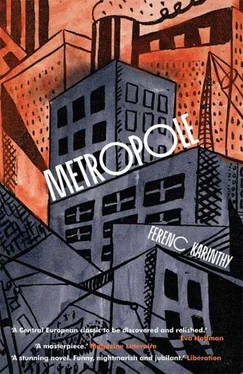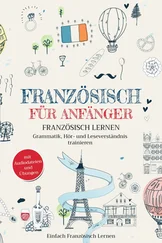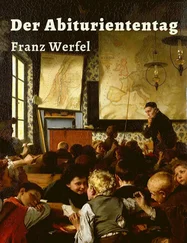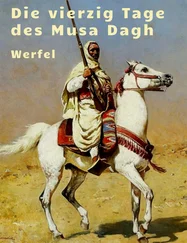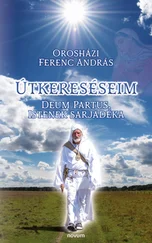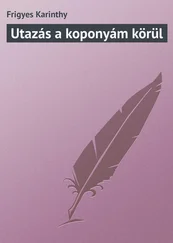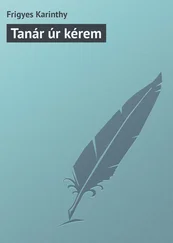Spring crept on day by day. In the morning as he opened his eyes a sharp, oblique clot of light would explode all over his little nook. He had been so used to seeing the city in bad weather, under dense cloud, that at first he thought the source of light must be electric and it was only slowly, with a fluttering of the heart, that he realised it was the warm rays of the sun.
There was a strange stirring in the air. There were always a few stray dogs rambling about the market hall but now they were running about, restless, barking, whimpering, howling, romping together in packs. A gentle light spilled across the ramp. The loading stopped for a break. He could hear music in the distance: drums, cymbals, trumpets.
He set out in its direction, drawn by the hullabaloo and soon enough reached the wide street he had come across on a previous scouting mission. There was an even larger crowd here than usual, onlookers gawping from both pavements while a procession of infinite rolling length covered the roadway.
The procession included children, school-age pupils, girls and boys in wind-cheaters and other brightly coloured uniforms, carrying batons, twirling yellow-white-black plumes of feathers, some in coherent masses, some all mixed up. Some groups proceeded by dancing, others on roller-skates, still others threw balls in the air or kept them bouncing. Some held balloons. There were flags, signs, banners too, all in the local, incomprehensible script. And images, representations whose significance Budai found it impossible to grasp; heraldic devices, symbols composed of various elements, caricatures, bulls and foxes with human heads, birds, an ape brandishing a fly-swat, an old woman who seemed to be dropping from a tree, a fat figure with the ice cracking beneath him, a baby with a wrinkled face shorn of its hair. Who were they? Who were the people being mocked? Then came the drummers, a band of girls in sparkling silver costumes, every one of them with a drum, and then the horn players, a bunch of metro conductors in dark uniform. An entire marching band of firemen clattered by, lads in red helmets with the red fire engine following them at a stately pace, the engine fully manned, the ladder extended.
Horsemen arrived at a stately clip-clop, hussars in mourning-black boots and collars followed by throbbing motorcycles with sidecars, their riders in one-piece cycling gear (once more Budai pondered what organisation they might be part of). And trucks full of infants bawling in reedy voices and waving flags. The trucks were drawing an enormous cylindrical object painted grey that must have been almost forty metres long at the sight of which the crowd stirred and rumbled, though Budai could only guess what it was: a bomb, a torpedo, a rocket, a spaceship? Then more musicians, this time playing xylophones and instruments that looked like vibraphones, mobile choirs grown hoarse, giving their all. Then a solitary, rather overweight, middle-aged woman in a brilliant yellow dress and a wide floral hat who was received with applause and general muttering to which she responded by smiling at everyone, this way and that. Nurses clad in white pushed wheelchairs laden with the paralysed and crippled. Other disabled people hobbled past on sticks and frames. There were even a few carried on stretchers.
There were clearly a lot of organisations involved: sportsmen, cyclists, weightlifters with bulging muscles, acrobats, clowns, masked figures, though the latter can have formed only a minor part of the revelry and were probably marching on other main routes too… The most astonishing and most populous group in the parade was composed of prisoners in the regulation stripes, their wrists handcuffed together, their heads bowed. They were escorted by rows of guards on either side wearing brown canvas one-piece uniforms like the motorcyclists before them. This peculiar procession of prisoners did not seem to want to come to an end. Ranks of women followed the men wearing similar outfits, then came children, even tiny ones, eight- to ten- year old boys and girls, all in the same prison dress, also handcuffed. Could they too have been taken from jail? Children? And where were they going? Or was it all a masquerade, a game, possibly a protest or demonstration. But against what? The guards were armed but seemed to be enjoying themselves, laughing, relaxed and waving at the crowd who waved back.
A distant humming signalled the arrival of the next attraction. Birds rose and wheeled above the road. It was a long time before it became clear what was it was. There was a large truck with some cages on it piled very high and as the vehicle proceeded ever more cages were opened to allow birds to fly out. They were not pigeons, more like starlings, their wings whirring as they circled in dense flocks, chattering, whistling, crying out in joy at being able to fly free again. They settled on telegraph wires, screeching loudly, then, suddenly roused, would take off once more into the vast blue sky. This was the most popular show, everyone whooping as they passed, and Budai too watched them, enchanted, his spirits rising with them, waiting to see what would come next.
But the nature of the procession changed at this point. Four solemn and bearded old men, wearing dark suits, marched past at funereal pace, slow and full of dignity followed by a noisy but loose group of what must have been ordinary if colourfully dressed people, happy, it seemed, to be led by the town elders. Spectators began to filter in among them, blending with the procession, swelling it into a flood. Budai too was swept along though he would willingly have joined them anyway.
Ever swelling, ever moving under its own weight and momentum, the crowd pressed through the street without a visible head or tail as if no-one knew quite where they were going or why. Here and there a flag or banner emerged above them. There was some chanting of slogans too, with people forming improvised choruses, singing a variety of songs all at the same time. A brown-skinned, gypsy-looking man in a sweater marched beside Budai, bellowing through a paper trumpet, his voice occasionally rising harshly above the general babble. A little further off a group of women and girls were screaming with laughter and teasing everyone. They tried to involve him too. One of them kept tickling his neck, giggling away with her brightly coloured plume of feathers. Now and then a wave of anger passed through the ranks like a gust of wind.
This endless torrent of confusion eventually fetched up in a large circular open space that must have been filling up from other directions too since it was already almost full. There was a fountain at the centre with a stone elephant that was supposed to spout water from its trunk. It seemed familiar from his earlier walks though the fountain wasn’t working now. A young, flowing-haired man had climbed between its tusks onto the base of the statue and was busily gesticulating. He wore a black shirt buttoned up to the collar and was haranguing the crowd. Judging from the rhythmic movements of his arms and a genuine euphony in his words he seemed to be reciting verse. The massed crowd watched him, gently shifting and arranging itself, some voices shouting back at him in agreement, others repeating the refrain or chorus of the poem along with the performer. That is if Budai had properly understood what was happening. The youth in the black shirt was ever more caught up with his performance. He shook his fist in the air, he raised his finger to heaven and closed his eyes. When he finished people applauded and cheered him as he leapt off the pedestal.
No sooner had he vacated it than someone else was helped up into his place, a frail, elderly, white-moustached man with thinning grey hair. He was visibly trembling, his legs hardly supporting him. It took two people to anchor him and his voice too trembled with passion. His prominent cheekbones and his broad bulging brow were flushed as he quietly stuttered something from a sheet of paper. The square had fallen silent as they heard him out, deeply moved. The old man was visibly delighted by the respect they afforded him, and it was only when he took a break and looked up that the crowd broke into loud, indignant agreement. He must have been specifically chosen to read out a series of declarations or demands. The excitement of doing so had exhausted him to the degree that his voice almost failed at times and he could hardly bring himself to whisper but kept coughing into his handkerchief, his face bright red, so that eventually he had to be helped down and led away.
Читать дальше
